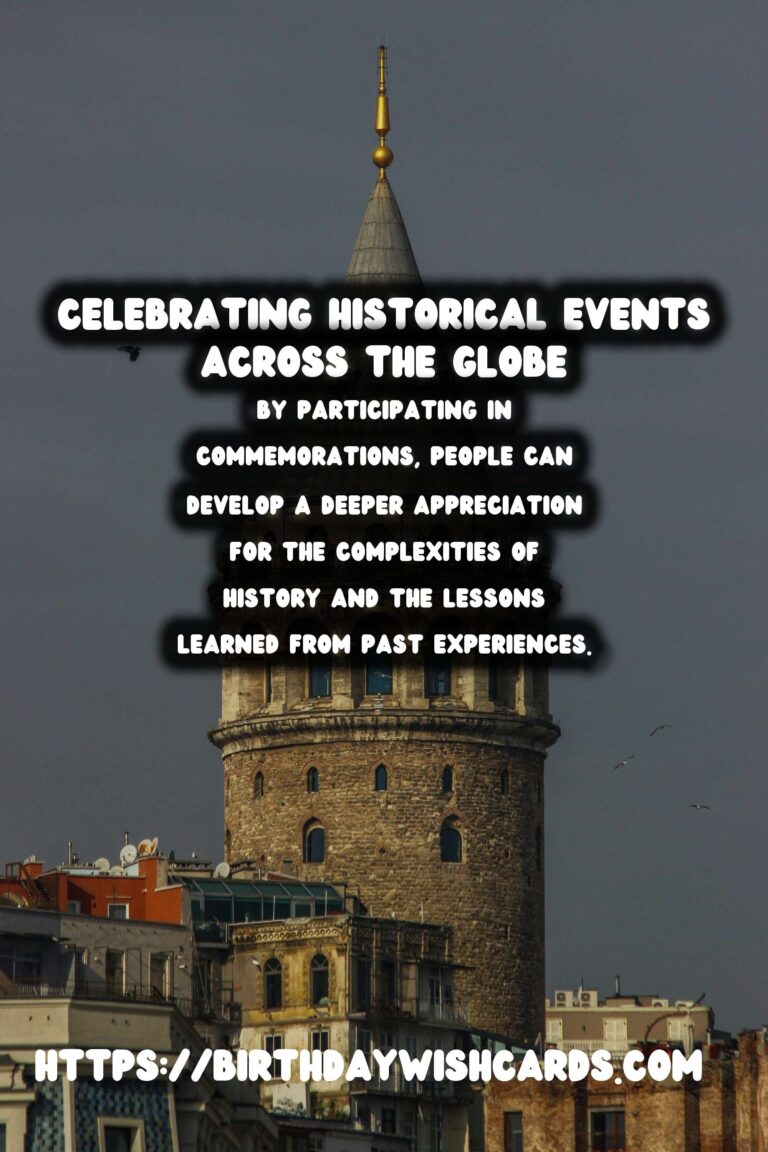
Historical commemorations serve as a poignant reminder of the past, guiding us to reflect on events that have shaped our present and will influence our future. By observing these commemorations, individuals and societies can pay tribute to significant events and figures, ensuring their lasting legacy.
Understanding Historical Commemorations
Historical commemorations are events or practices that honor significant occurrences or people from the past. These commemorations can be national holidays, public ceremonies, or even private remembrances. They play a critical role in preserving heritage and educating future generations about pivotal moments in history.
Commemorations often include ceremonies, speeches, and educational activities that highlight historical contexts, helping communities to understand the causes and effects of such events.
The Importance of Historical Commemorations
Commemorating historical events encourages reflection and dialogue among individuals and communities. They serve multiple purposes, including remembering sacrifices, celebrating achievements, and fostering a sense of identity and continuity.
By participating in commemorations, people can develop a deeper appreciation for the complexities of history and the lessons learned from past experiences. These events provide an opportunity for collective reflection, enabling societies to address ongoing challenges by drawing insights from history.
Notable Historical Commemorations Around the World
Independence Day Celebrations
Many countries mark their independence with grand celebrations. For instance, the United States observes Independence Day on July 4th, celebrating the signing of the Declaration of Independence in 1776. This day is celebrated with fireworks, parades, and public events, fostering a strong sense of national pride.
Remembrance Day
Observed in many Commonwealth countries, Remembrance Day honors members of the armed forces who have died in the line of duty. It is held on November 11th, marking the end of World War I. The day is marked by public ceremonies, moments of silence, and the wearing of red poppies as a symbol of respect and remembrance.
Holocaust Memorial Day
International Holocaust Memorial Day on January 27th commemorates the victims of the Holocaust during World War II. Educational programs, exhibits, and solemn ceremonies are conducted to remember the lives lost and to highlight the importance of preventing genocide.
The Role of Education in Commemorations
Education is a core component of historical commemorations. By including educational programs, commemorations transcend mere ceremonies and become tools for learning. Such programs can include lectures, workshops, and exhibits that delve into the historical, social, and political contexts of commemorated events.
In schools, students learn about historical events through various mediums, ensuring that the lessons of the past are not forgotten but instead integrated into the fabric of contemporary knowledge and culture.
The Challenges of Commemorating History
While commemorations offer significant benefits, they also face challenges. The interpretation of history can vary, leading to diverse and sometimes conflicting narratives. It’s essential to approach commemorations with sensitivity and a commitment to inclusivity, acknowledging all perspectives involved.
An ongoing dialogue about the interpretation of history can contribute to a more comprehensive understanding and respect for the varied experiences and memories associated with historical events.
Conclusion: Embracing Historical Commemorations
Embracing historical commemorations is vital in creating informed and cohesive communities. By acknowledging the past, we can foster a society that values its heritage, learns from its mistakes, and builds towards a positive future.
These commemorations not only honor the past but also serve as a foundation upon which we can build resilient and multifaceted societies, encouraging a better understanding of humanity and history.
Historical commemorations serve as a poignant reminder of the past, guiding us to reflect on events that have shaped our present and will influence our future. By participating in commemorations, people can develop a deeper appreciation for the complexities of history and the lessons learned from past experiences. 
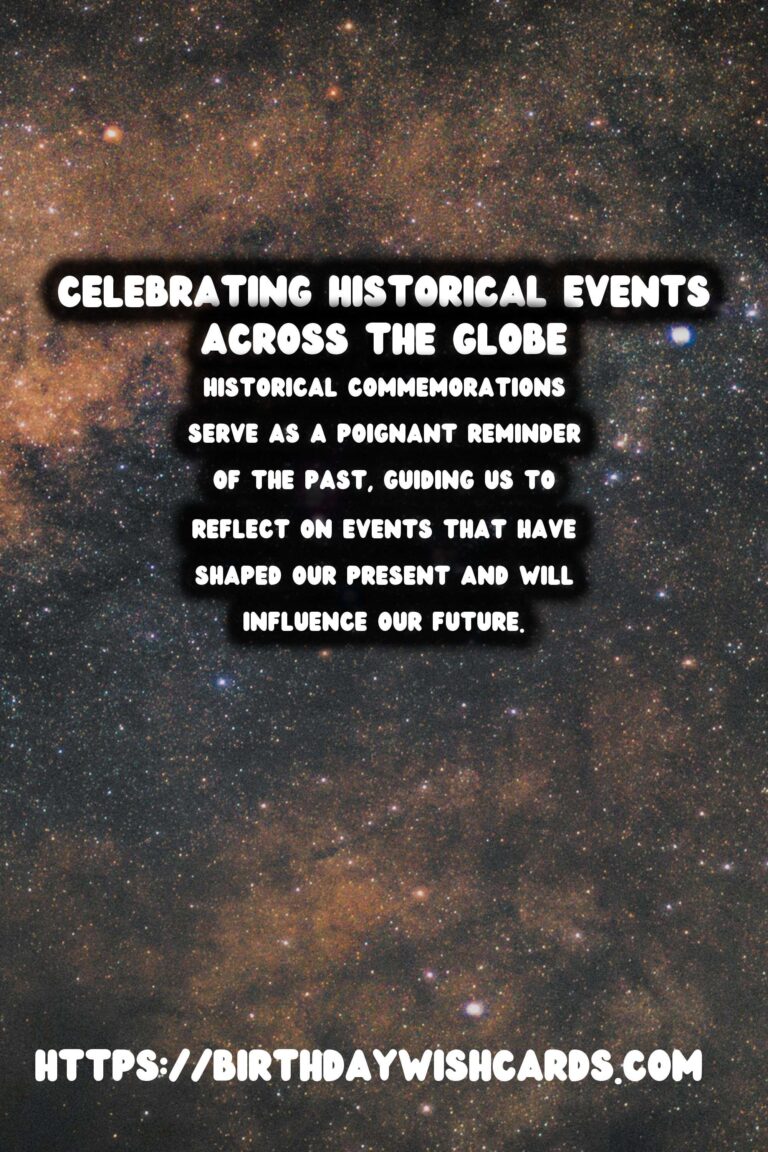
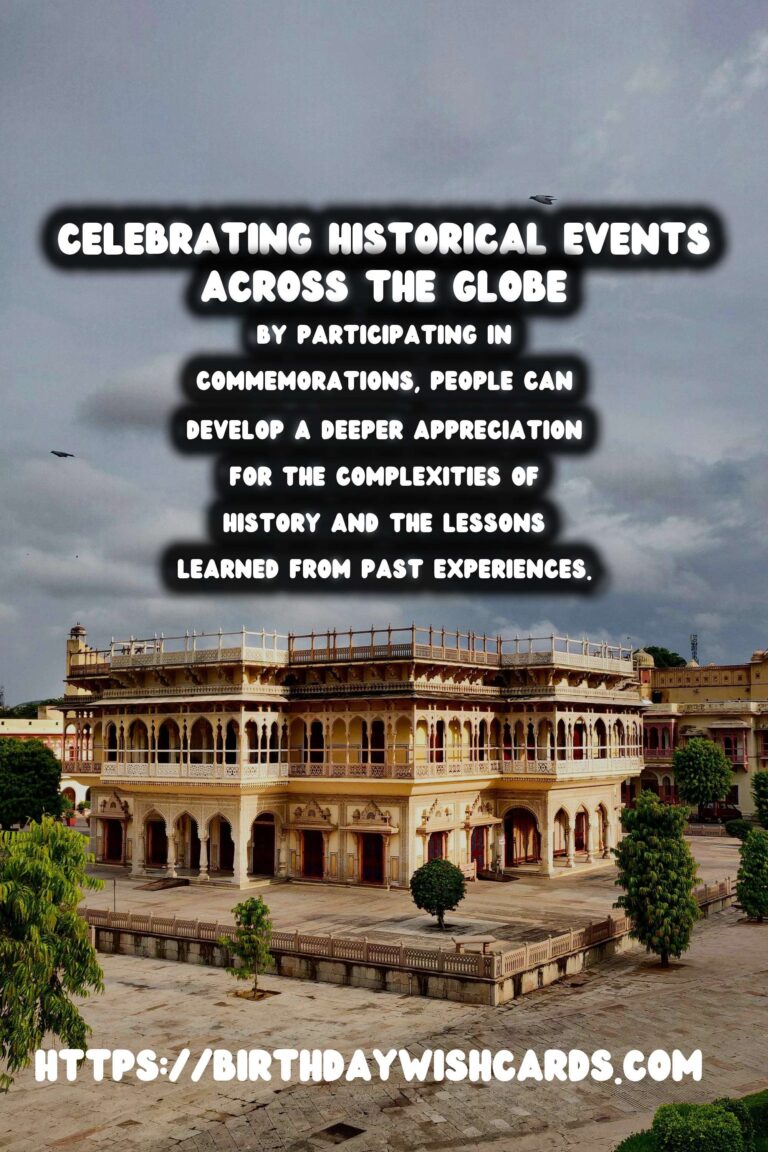
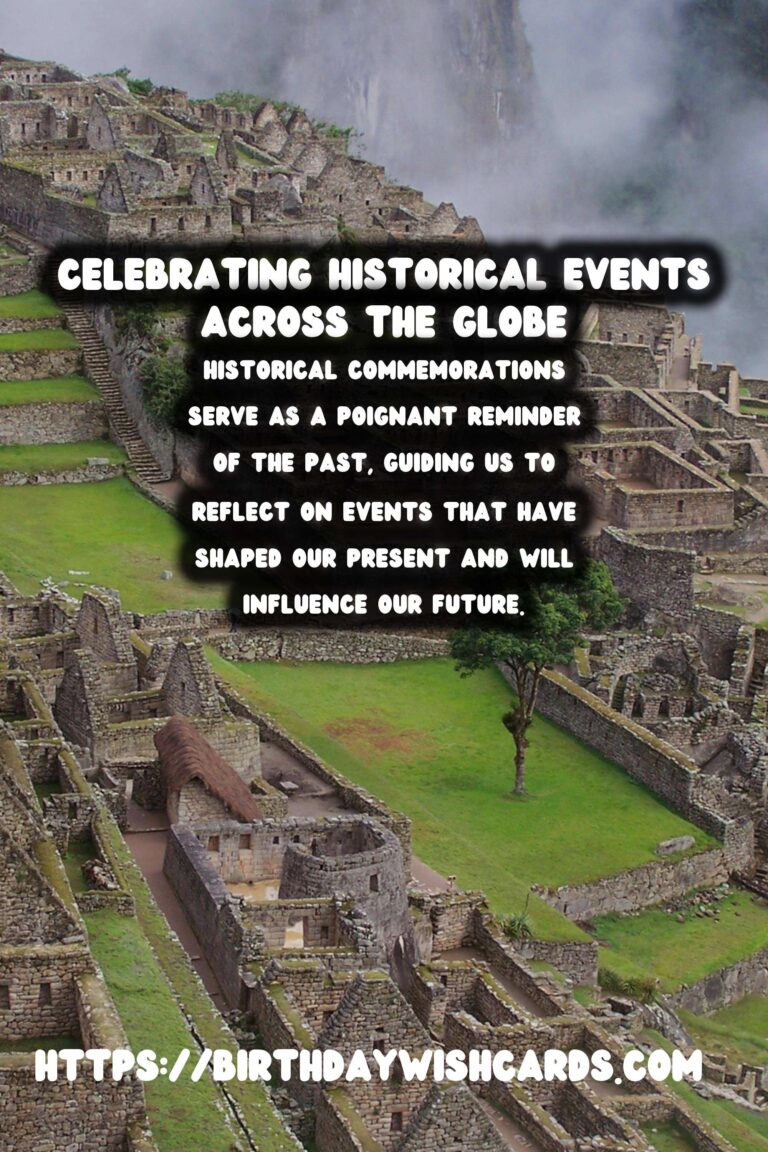
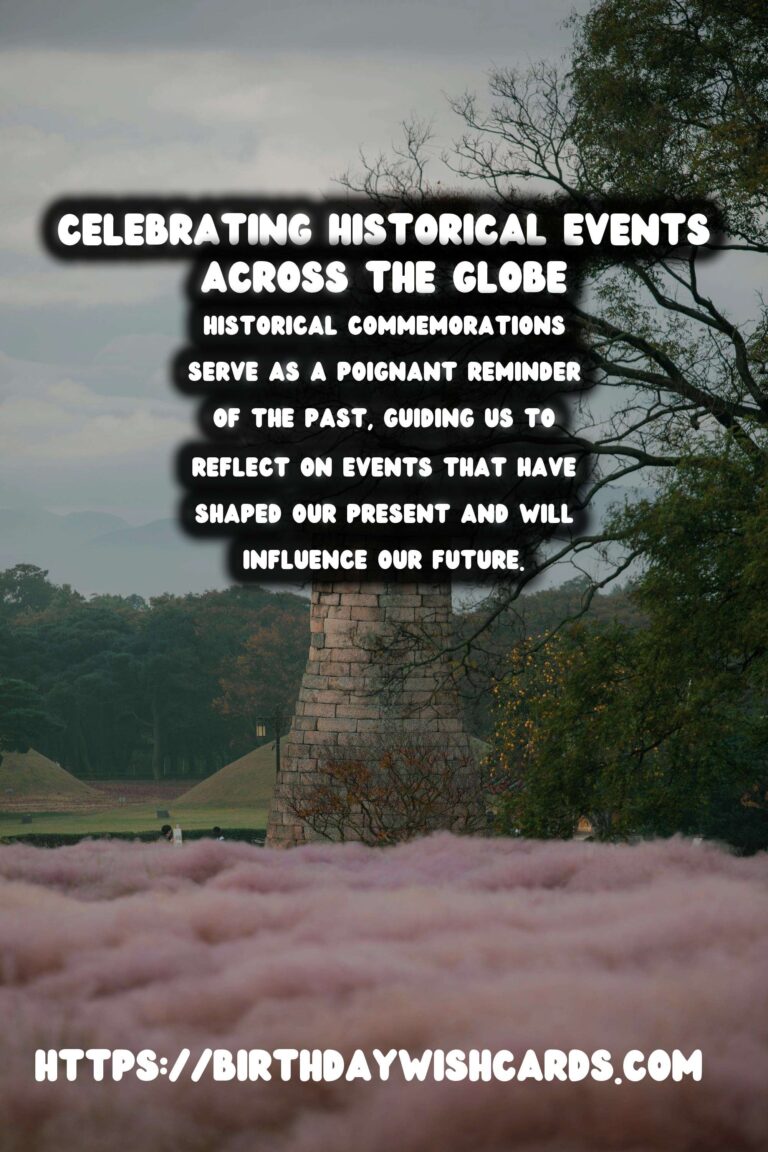
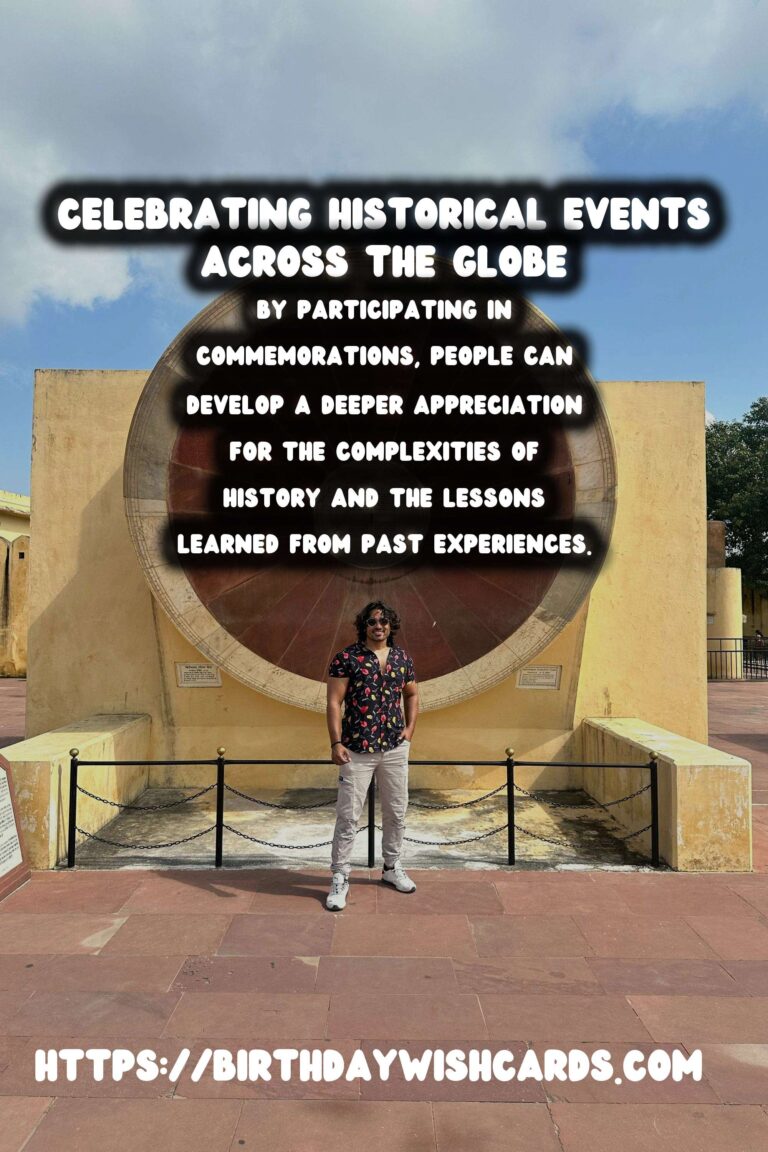
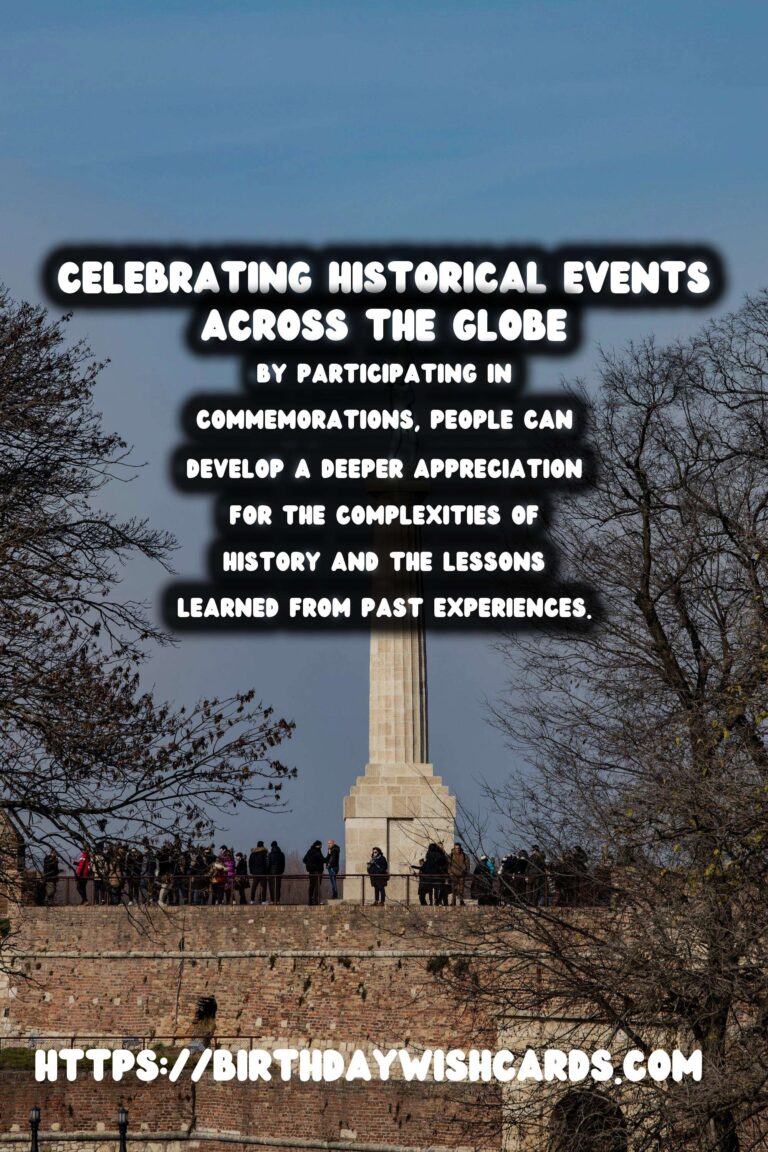
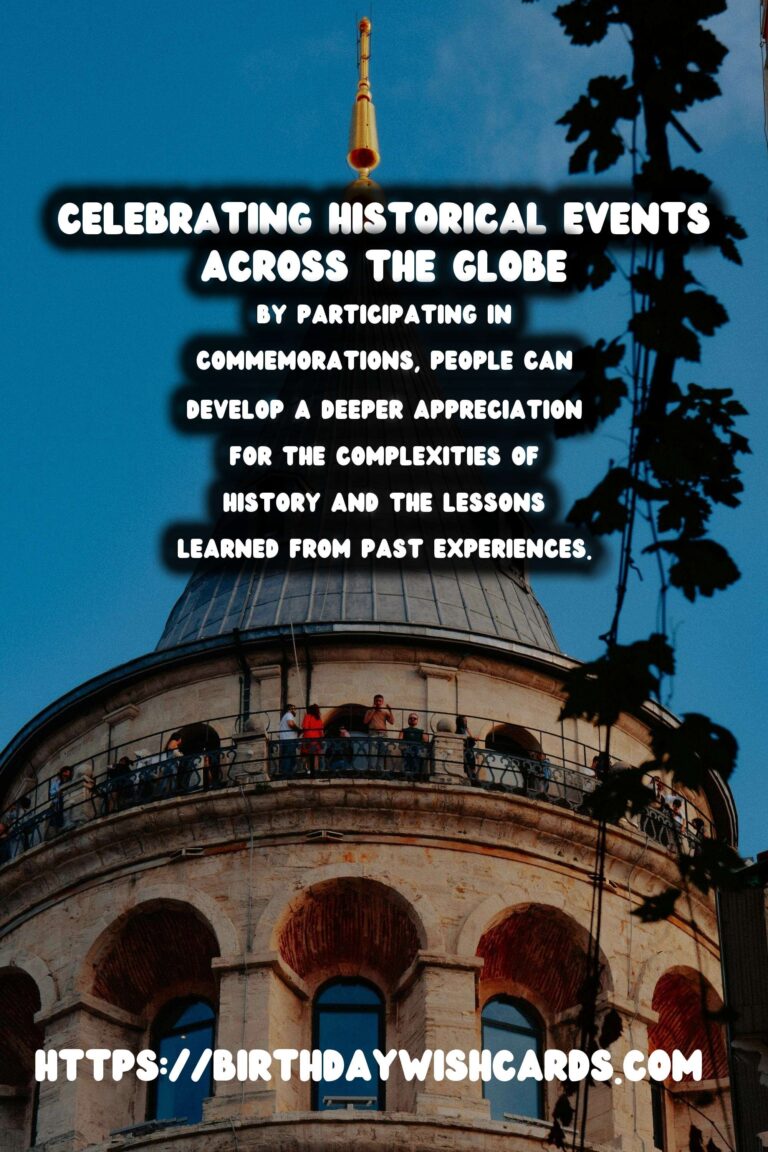
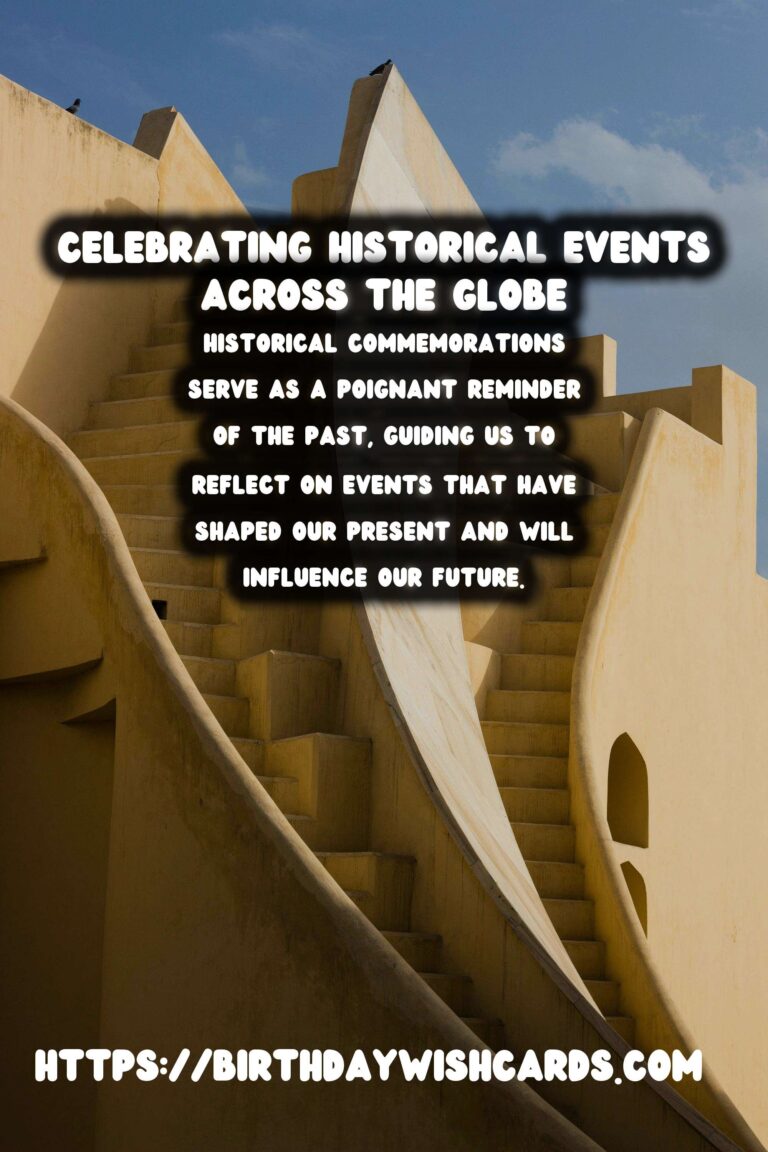
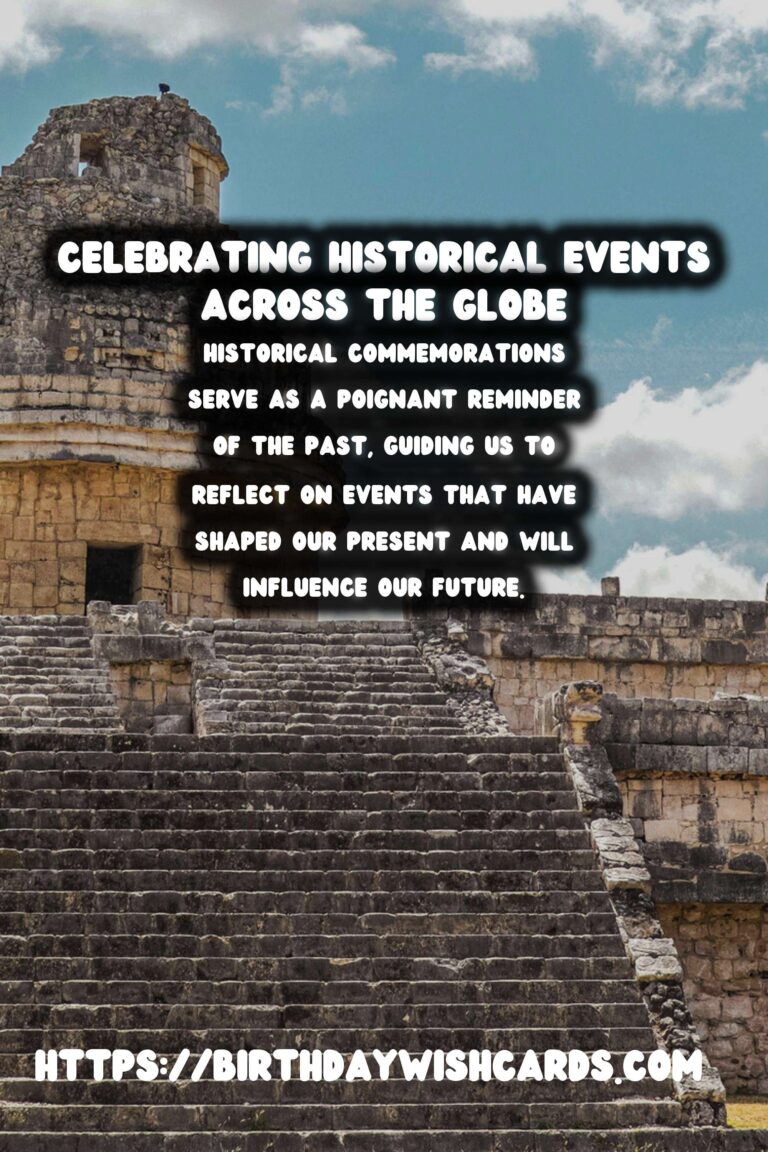
#historicalcommemorations #rememberinghistory




